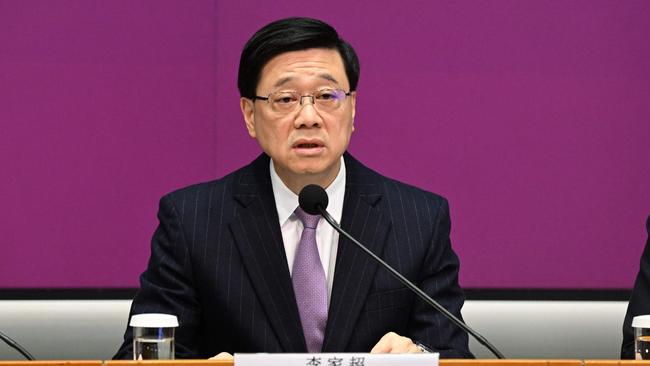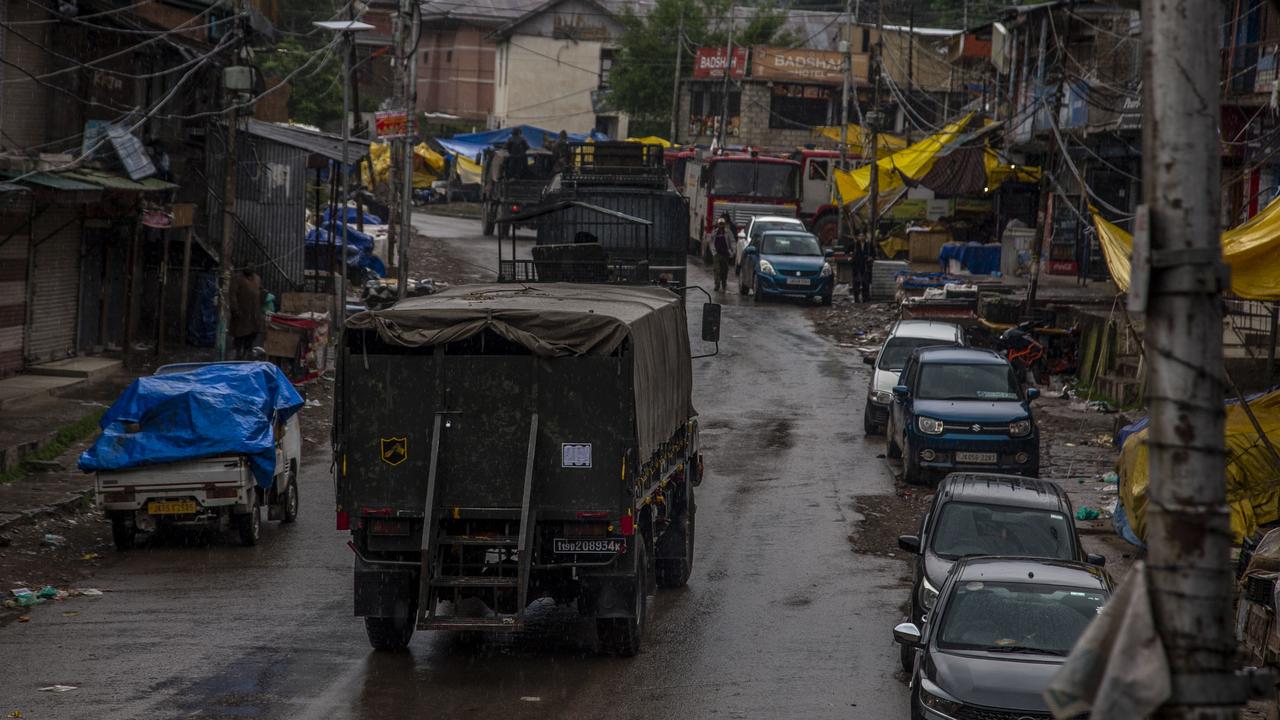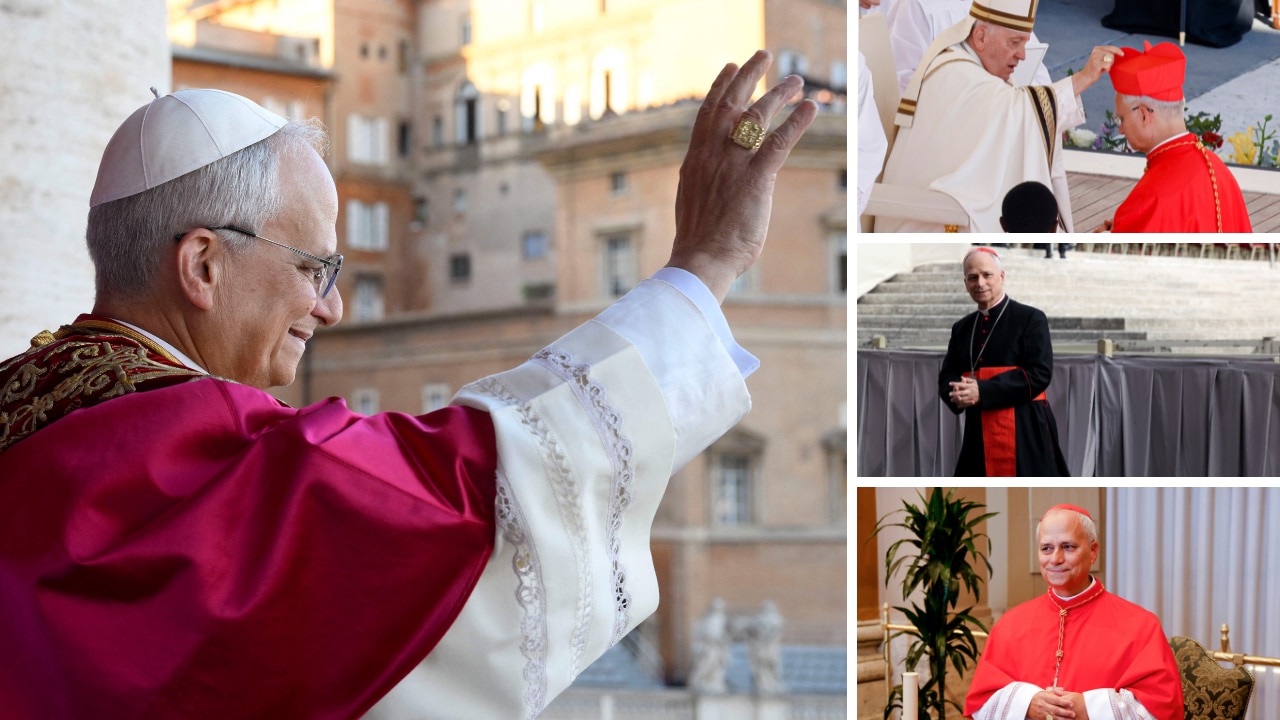Territory leaders threaten to gag protesters worldwide
The pro-Chinese leadership of Hong Kong is pushing through security laws to prosecute opponents even when they are outside the territory.

The pro-Chinese leadership of Hong Kong is pushing through new security laws designed to prevent anti-government protests and give it powers to prosecute opponents even when they are outside the territory.
Hong Kong chief executive John Lee said the new legislation was urgently needed to suppress independence sentiment after the huge anti-government protests in 2019.
“We shouldn’t wait any longer,” he said, after announcing the start of a “consultation period” on the new laws. “The threats to national security are real. We have suffered from them badly. While the society as a whole looks calm and very safe, we still have to watch out for potential sabotage and undercurrents that try to create troubles, particularly when some of the ‘independent Hong Kong’ ideas are still being embedded in some people’s minds.”
The legislation would augment the national security law imposed on Hong Kong by Beijing in 2020 after street protests.
Nearly 300 people have been arrested since then for national security offences including activists, journalists and elected politicians from pro-democracy parties. More than 30 have been convicted. Other activists have fled abroad.
The new law originates in the basic law – the constitution of Hong Kong since it was handed back to China by Britain, its former colonial ruler. Article 23 obliges the Hong Kong government to devise national security laws. An attempt to do so in 2003 was abandoned after mass protests.
According to the consultation document, the law would cover offences of treason, insurrection, sedition, theft of state secrets, espionage and sabotage. The offence of “incitement to disaffection”, which is based on a British colonial law, would criminalise those who encourage civil servants or the police to neglect their duty or national allegiance.
The law would also increase the government’s power to go after those who work with foreign organisations or forces to influence legislation or “publish misleading statements”.
It would define as offences some acts committed outside Hong Kong, even by those who are not citizens or residents of the territory.
Hong Kong’s legislature has been purged of anyone not deemed by the authorities to be a “patriot”, so the proposed changes are almost certain to be passed.
“When people see that this law will bring security and stability they will love it,” Mr Lee said.
Opponents said that one of the aims was to encourage self-censorship by Hongkongers and foreigners operating in Hong Kong in an effort to avoid reproach or prosecution.
● Amazon has declined to explain why one of its dramas set in the territory and touching on the protest movement is not being streamed there.
Expats, starring Nicole Kidman, was released on Friday, but is not available in Hong Kong.
The six-part series includes scenes of the 2014 “umbrella movement”, the precursor to the 2019 protests.
Adapted from a prizewinning novel, it contains footage from the actual umbrella movement protests, with the first episode including shots of protesters chanting in favour of universal suffrage.
Viewers in Hong Kong see a message announcing “this video is currently unavailable to watch in your location”.
The Times



To join the conversation, please log in. Don't have an account? Register
Join the conversation, you are commenting as Logout